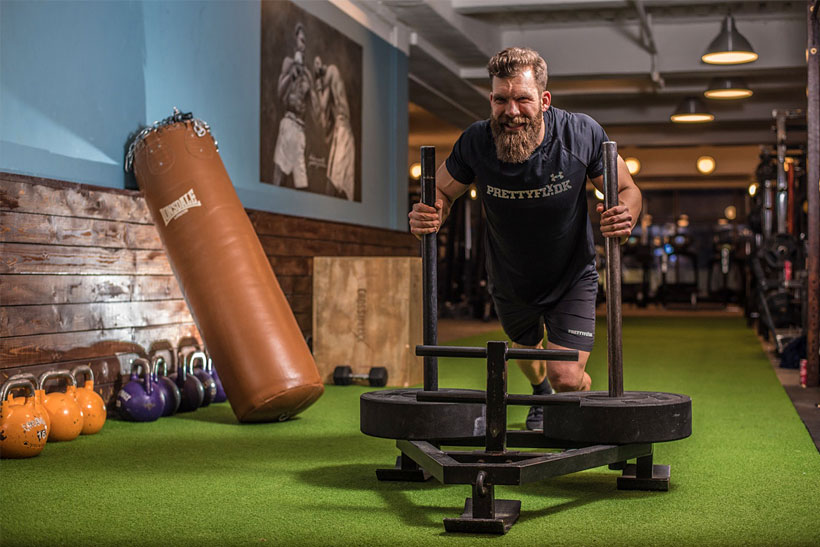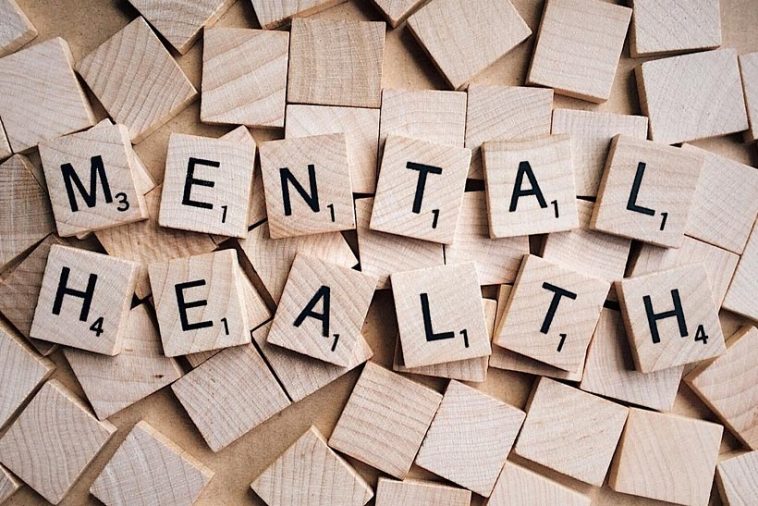- Like
- SHARE
- Digg
- Del
- Tumblr
- VKontakte
- Flattr
- Buffer
- Love This
- Save
- Odnoklassniki
- Meneame
- Blogger
- Amazon
- Yahoo Mail
- Gmail
- AOL
- Newsvine
- HackerNews
- Evernote
- MySpace
- Mail.ru
- Viadeo
- Line
- Comments
- Yummly
- SMS
- Viber
- Telegram
- JOIN
- Skype
- Facebook Messenger
- Kakao
- LiveJournal
- Yammer
- Edgar
- Fintel
- Mix
- Instapaper
- Copy Link
 One of the biggest improvements over the last decade has been the change in the general public’s knowledge of mental health. There is still a long way to go, but it is rarely seen as a weakness and is instead seen as an additional challenge. This is a great way to look at mental health and those suffering from mental health issues – particularly depression. A challenge to be faced.
One of the biggest improvements over the last decade has been the change in the general public’s knowledge of mental health. There is still a long way to go, but it is rarely seen as a weakness and is instead seen as an additional challenge. This is a great way to look at mental health and those suffering from mental health issues – particularly depression. A challenge to be faced.
There are many different mental health issues out there, and many different causes and solutions. No single article is going to be able to address all of them. So, in this article we are going to narrow the subject and focus on the effect of exercise on depression.
Staying Active
 There are many forms of exercise, and we will be exploring each of them and their relation to improving mental health in this article. But not all good habits that burn calories and improve your health are classed as exercise. Non Exercise Activity Thermogenesis (NEAT) is a measure of all the calories you burn throughout the day performing actions that are not considered exercise.
There are many forms of exercise, and we will be exploring each of them and their relation to improving mental health in this article. But not all good habits that burn calories and improve your health are classed as exercise. Non Exercise Activity Thermogenesis (NEAT) is a measure of all the calories you burn throughout the day performing actions that are not considered exercise.
This can include walking, running to catch a bus, doing some yard work, vacuuming the house, or walking the dog. All of these activities burn calories, so they are of great interest to anyone looking to boost their metabolism and burn calories.
But it is also interesting to anyone who wants to reduce stress, improve cognition (how you think and remember things) and deal with depression.
A 2015 study published in the American Journal of Preventative Medicine found that women who walked regularly (and performed other forms of exercise) reported a significantly improved health-related quality of life. This included a reduction in depressive symptoms.
It is important to make the distinction between curing depression and treating the symptoms of depression. No exercise is going to “fix” the root cause of depression or other mental health issues, but like medication, exercise and staying active can help ease the symptoms – which will improve quality of life and many of the side effects (fatigue, lethargy, stress, bad sleep etc) that occur.
A 1999 study by Kenneth R Fox found that physical activity “has a moderate reducing effect on state and trait anxiety and can improve physical self-perceptions and in some cases global self-esteem”.
Running and Mental Health
 One of the most commonly cited reason why some people with depression don’t exercise regularly is that they are scared of joining a gym. This is perhaps not that surprising. Even though most people will say that gyms are friendly places, they can be quite intimidating. Particularly if you are suffering from anxiety, or low self-esteem.
One of the most commonly cited reason why some people with depression don’t exercise regularly is that they are scared of joining a gym. This is perhaps not that surprising. Even though most people will say that gyms are friendly places, they can be quite intimidating. Particularly if you are suffering from anxiety, or low self-esteem.
Running (or jogging) is a fantastic way to exercise without having to join a gym, it is cost effective (you basically just need some running shoes) and can be as long or short as you need it to be. When we exercise, particularly when training at a higher intensity, our body releases endorphins to reduce the perception of pain and fatigue. The more tiring the exercise, the more endorphins (up to a point).
Running has been shown to help release endorphins which leave the runner feeling happier, less fatigued, more energised etc. This can help treat several of the symptoms of depression. Running will also help you sleep better and may help boost your self-esteem by improving your physique.
Getting into running may also help improve your cardiovascular health, which will make joining a gym or participating in sports a lot easier. Which brings us on to the next section.
Joining a Sports Team
 One thing about depression and similar mental health issues is that they can be quite isolating. Whether depression can cause people to become isolated or vice versa is up for debate. But in some cases, expanding your social circle may help. Playing sports is a lot more enjoyable than running (for most people) and is more likely to illicit joy.
One thing about depression and similar mental health issues is that they can be quite isolating. Whether depression can cause people to become isolated or vice versa is up for debate. But in some cases, expanding your social circle may help. Playing sports is a lot more enjoyable than running (for most people) and is more likely to illicit joy.
Sports teams also help you to socialize more, whether it be through the sport itself, or through team bonding activities. Don’t worry if you’re not very good at sports, there will always be a sports team that suits your level, even if you’ve never played it before. You’ll also learn and improve as you go along. If you suffer from anxiety and you find that competing makes it worse, then why not just stay for the practice sessions?
Joining a Gym
 While not necessary for mental health improvements, joining a gym has many benefits. Particularly if you live in an area with inclement weather. You’ve got access to much more equipment than you would normally have available to you, and you are able to use resistance training (machines and free weights) to build muscle, increase endorphins, and improve your hormone regulation.
While not necessary for mental health improvements, joining a gym has many benefits. Particularly if you live in an area with inclement weather. You’ve got access to much more equipment than you would normally have available to you, and you are able to use resistance training (machines and free weights) to build muscle, increase endorphins, and improve your hormone regulation.
Final Thoughts
Finding a way to improve your mental health with exercise is very important, exercise has long been associated with improved mood, but it also appears to improve cognitive ability, it can also reduce the risk of many metabolic diseases such as obesity, type II diabetes, and strokes. Exercise will help to relieve stress, improve sleep quality, improve quality of life, reduce anxiety, and generally help you feel better.
Find the right form of physical activity for you or combine several different ones. Remember to consult your doctor beforehand. Depression and other mental health issues need medical supervision and possibly medical intervention. They will almost certainly encourage you to exercise more, but they may also recommend medication or other interventions as well.

